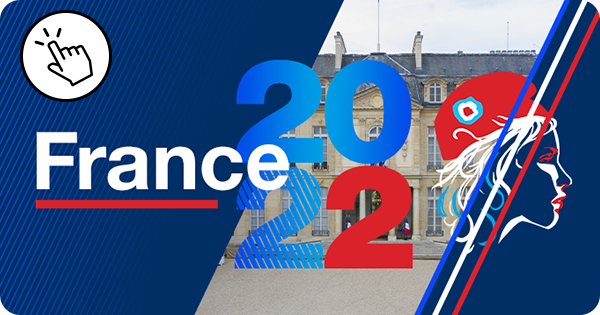French President Emmanuel Macron faced the daunting challenge of uniting a deeply divided nation Tuesday after winning re-election in a battle against Marine Le Pen that saw the far right come its closest yet to taking power.
Centrist Macron won 58.54 percent of the vote in the second-round run-off compared with 41.46 for Le Pen, according to final results from the interior ministry.
Macron is the first French president in two decades to win a second term and his victory prompted a sigh of relief throughout Europe.
But his win over his far-right rival was narrower than their last face-off in 2017, when Macron won more than 66 percent. Le Pen's result this time around was the best ever for the far right.
Macron acknowledged some of the challenges he now faces in his victory speech Sunday night in front of the Eiffel Tower in Paris.
“Our country is beset by doubts and divisions,” he said. “Today’s vote requires us to consider all the hardships of people’s lives and to respond effectively to them and to the anger expressed.”
The French president has a long to-do list, ranging from preparing for key parliamentary elections in June to implementing his long-delayed pension reform plans and dealing with the Russian invasion of Ukraine.
Macron also has to contend with an energised far left, many of whom backed far-leftist Jean-Luc Mélenchon in the first round and voted for the incumbent in the final round only to stop a far-right victory.
“There are not just two Frances, there are at least three,” said Brice Teinturier, head of the Ipsos polling institute, speaking on France Inter radio. Mélenchon’s France is not reconcilable with Le Pen’s, he said. "Its values and aspirations are radically opposed to those of the far right.”
"The difficulties are going to start real soon," Teinturier told AFP.
Disenchantment
Addressing supporters late on Sunday, Macron vowed to heal rifts in a deeply divided country, promising a response to the "anger" that prompted many French to vote for the far right.
Turnout was the lowest in any presidential election second-round run-off since 1969 and, in another striking sign of disenchantment with politics, 8.6 percent of people who showed up to vote either submitted a blank or nullified ballot in protest.
"We need to respond to the angry and worried messages from millions of French people who say, 'I can't make ends meet'," Finance Minister Bruno Le Maire said Monday.
The 44-year-old president now faces parliamentary elections in June, where keeping a majority will be critical for his ambitions.
"Macron's biggest challenge will be to create a sense of cohesion in an extremely fragmented country," said Tara Varma, senior policy fellow and head of the Paris office of the European Council on Foreign Relations.
'Victory without triumph'
French daily Le Monde called Macron's win "an evening of victory without a triumph".
Conservative daily Le Figaro said Macron's win was "no mean feat" but also asked: "Who can possibly believe that it is rooted in popular support?"
Within the next two weeks Macron is expected to reshuffle his government, with the departure of Prime Minister Jean Castex a near certainty, and several other ministers also likely to be replaced.
"Many in government are exhausted and he needs new blood," said one Élysée official who asked not to be named.
Macron will aim for gender parity in his next cabinet and has said he would like to see a woman become his next prime minister.
For Le Pen, 53, her third defeat in a presidential poll was a bitter pill after years of trying to soften her far-right image to make herself more electable. But she made clear she still had political ambitions.
Le Pen said on Sunday she would "never abandon" the French and declared that she had scored a "brilliant victory" in her defeat.
For the upcoming parliamentary elections, her party has not formed an alliance with that of far-right rival Éric Zemmour, who scored 7 percent in the first round of the presidential election.
Senior Le Pen aide Jean-Philippe Tanguy said Monday that Zemmour would have to acknowledge that she was the leader of the opposition.
Relief among allies
Macron will now try to implement his vision of more pro-business reforms and tighter EU integration after a first term overshadowed by protests, then the coronavirus pandemic and finally Russia's invasion of Ukraine.
Macron's re-election sparked relief across Europe, where he has been seen as a guarantor of continuity.
Italian Prime Minister Mario Draghi called Macron's victory "great news", European Commission chief Ursula von der Leyen said she was "delighted" and German Chancellor Olaf Scholz said French voters had "sent a strong vote of confidence in Europe today".
US President Joe Biden, Canada's Prime Minister Justin Trudeau and Australian premier Scott Morrison also welcomed his win.
Russian President Vladimir Putin – whom Macron had unsuccessfully sought to persuade to end the invasion of Ukraine – said Monday he wished the French president "success in your state activities, as well as good health and well-being".
Ukrainian President Volodymyr Zelensky called Macron "a true friend of Ukraine".
(FRANCE 24 with AFP)








